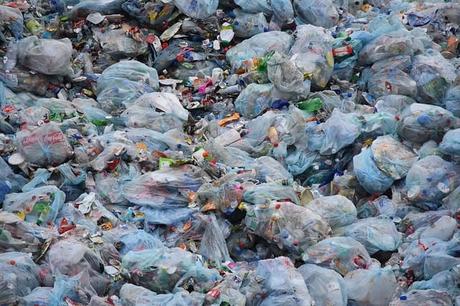It is intriguing when you look at how scientifically advanced western nations have become and yet there has been no viable alternative to plastic bags successfully developed and implemented. Plastic packaging is still used on thousands of products and a very substantial part of it ends up as landfill. Some plastic items are being recycled and there has been a push by Governments particularly with recycling drink bottles. But the level of plastic packaging is still very high and is becoming a curse on the environment.
There has been an increasing level of plastic waste, particularly as countries continue to be accepting of its use in daily life as convenient and affordable even with increasing affluence. The waste management systems of countries are no longer able to effectively handle the increasing quantities. In addition, local disposal practices are not appropriate and allow plastics to pollute the environment.

Adding to this was a report released in 2016 that stated that the weight of the plastic pollution in the oceans by 2050 would be greater than the weight of the fish in the oceans.
There has been a recent push to reduce the use of plastic bags for grocery shopping. Many shops now will offer an alternative reusable shopping bag that could be made from organic materials or even recycled plastic that has been branded by them in some way.
However, many people still continue to use the plastic bags as they are convenient. In some countries, the Government has introduced legislation to prevent plastic bags from being offered at shops and some large supermarkets have themselves decided that they will become plastic bag free.
This change in a simple social dynamic is clearly an effective way to reduce the use of plastic bags in western nations but there are still many countries where the use of the plastic bag crosses into many areas of use. In countries throughout Asia, the plastic bag is used to hold the actual liquid of drinks with ice and a straw. It is used for condiments that accompany a takeaway order. It is used to carry your takeaway order that you can take home and reheat.
Almost every time you buy something it will be given to you in a plastic bag. It is just how things are done. And the system for the disposal of rubbish sometimes does not really manage the disposal of plastic very well. You are able to travel across Asia and see plastic bags lining the roads or all across the ground in poorer parts of the towns. The wind blows them around and the rain washes them into the mud or into rivers.
It is a serious problem that has been recognized by many Governments in the region but not one that is really captured the attention of senior-level influential figures. The focus tends to be on other business development and health activities. There have however been some efforts made to identify suitable alternatives.
In Indonesia, there has been a whole range of products developed by a local businessman who was unhappy with there being such a large amount of plastic pollution around Bali. His company has developed bags for products which are made from cassava, coffee cups and takeaway bowls made of paper lined with cornstarch, a takeaway food box made from sugar cane and drinking straws that have been developed from paper and a waxy material from plants. The coffee cups and fast food bowls are able to be used for hot items and will biodegrade effectively when thrown away.
Indonesia is an island nation and so much of the plastic that goes into the rivers is then likely to go into the ocean. It has been recognized as a major polluter of its oceans and it is clear that there need to be new approaches brought to resolve this situation with appropriate support from the Government and businesses. These products are so safe that they are even able to be eaten although you would not get any nutritional benefit and the taste may not be so good. However, for sea life this is a great advantage as ingesting plastic has been an ongoing problem in recent years.
Changing the way that people view the use of plastic will have to be the way that most Governments need to address the problem. Changing the way that people behave will need to be influenced by Government legislation and support from industry but there must also be a convenient alternative that people are able to use.
Plastic is already a man-made pollutant that has spread across our environment. It is negatively impacting the environment across a range of regions. Governments need to find ways to ensure that efforts are made to limit the use of plastic and part of this could be consideration of the use of plastic alternatives.
The UN is not a strong advocate for plastic alternatives and is instead focusing on working with large businesses to reduce their plastic use. The UN considers that plastic alternatives are more costly and will be unlikely to appeal to the market because of this. However, it has not completely closed the door and says that there needs to be more learned about the industry to identify if it will be part of a broader environmental solution.

